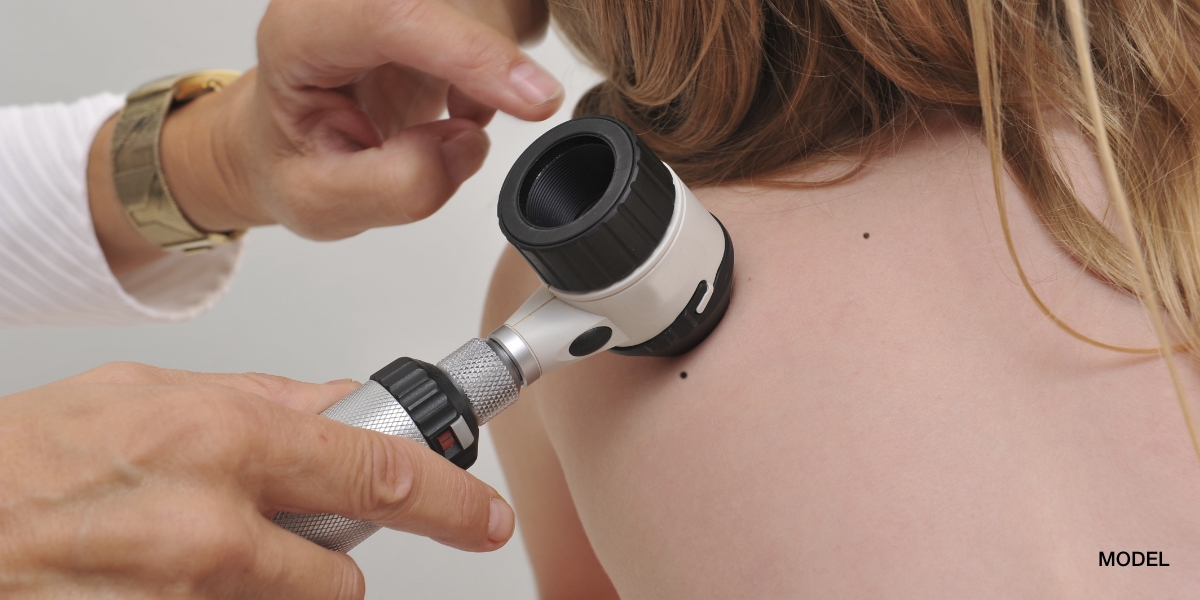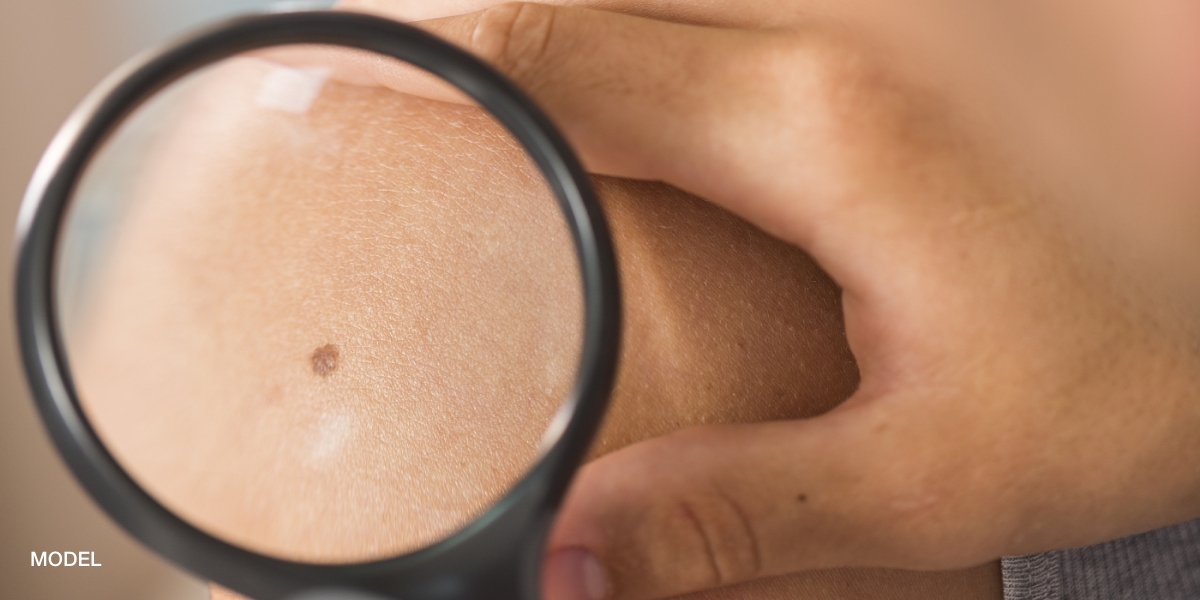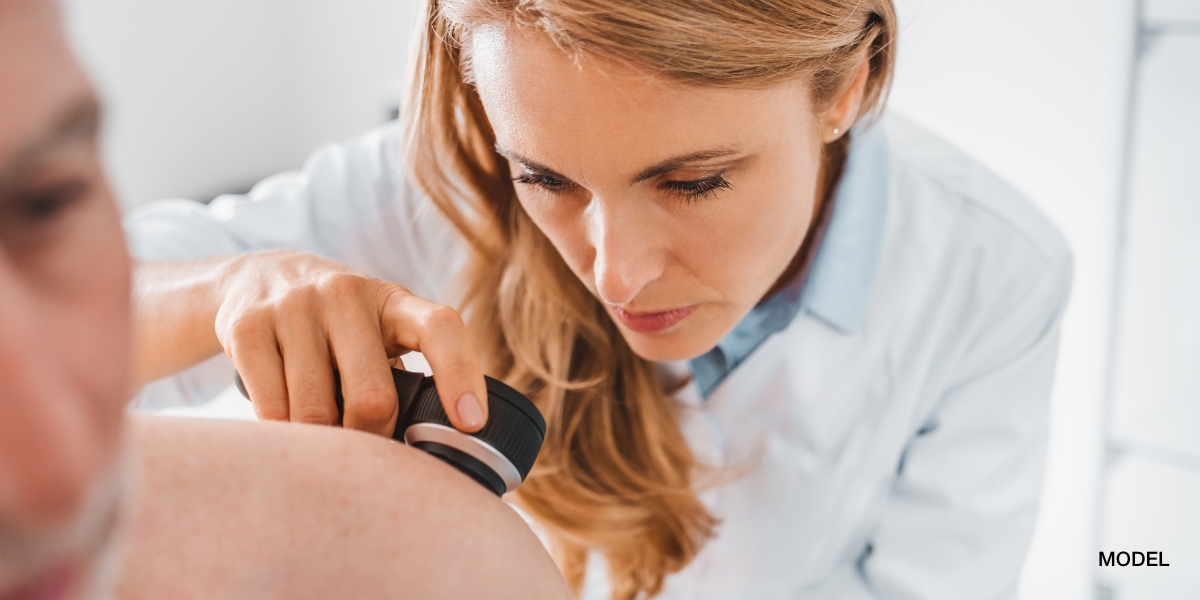Rosacea is one of the most common skin conditions I encounter in both my Woodlands dermatology and Conroe dermatology clinic. It is most common in fair skinned patients especially women and first manifests in the late 20’s and 30’s. It seems to affect patients who never experienced acne and had “good skin” when they were younger. Although there are 5 subtypes of rosacea, certain features predominate. Most patients experience rosacea in the T-zone of their face affecting their forehead, nose, cheeks, and chin although the neck and chest can be involved in some patients. Unlike acne, rosacea is dry and not greasy/oily and the skin is more sensitive an unable to handle harsh acne medicines such as benzoyl peroxide or salicylic acid and definitely not chemical peels. A general redness exists on the face of most patients with rosacea which is due to the underlying dilated vasculature. When closely examining a patient with rosacea, the comedone, which is the classic lesion in acne is absent in rosacea. Due to the increased skin sensitivity, patients must be careful to avoid rosacea triggers: sunlight, stress, caffeine, alcohol, hot liquids, extremes of temperature, spicy foods. Every patient is unique so some of these triggers are totally innocuous in certain individuals with rosacea. There are 4 main types of rosacea: 1. Erythremaotelangiectatic – redness predominates and the texture is smooth with only fine scaling 2. Papulopustular – more like acne with papules and pustules 3. Glandular/Phymatous – most common in men with oily skin and the development of large collections of sebaceous glands producing an enlarged bulbous nose called rhinophyma 4. Ocular – the eyelids are affected resulting in blepharitis and chalazions (styes) with a feeling of “sand in the eye”. 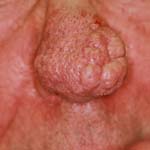
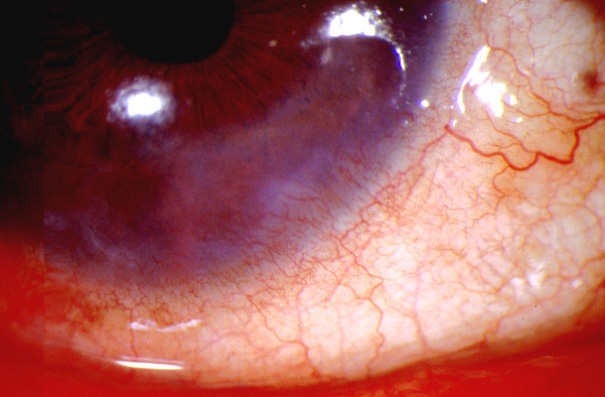
October 2, 2010

